Two Step Equation Holiday Word Problems Funny
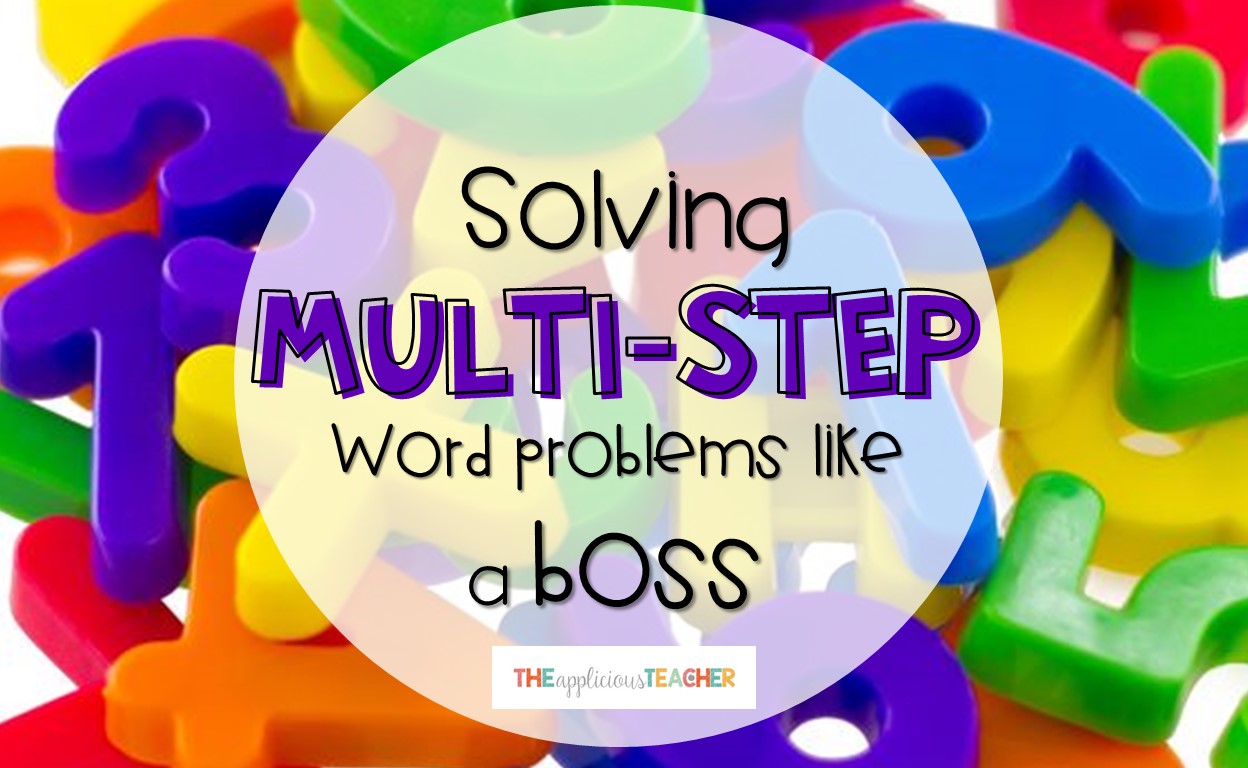
Even though we just got back from Thanksgiving break and Christmas break is literally just around the corner (how can that be?!) we're still working through content like it's no one's business. Who's got down time in 3rd grade? #notthisteacher This week is all about solving multi-step word problems.
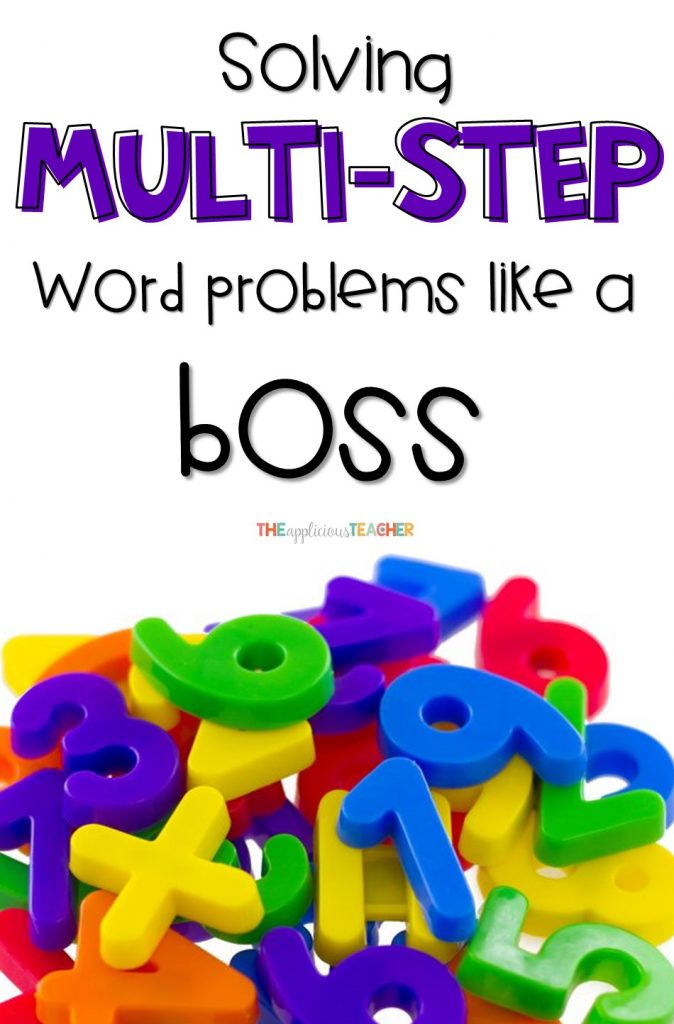
Now, any teacher can tell you that word problems on their own are tricky enough. Key-words, important information, sometimes extra information, it's all hard to sort through when you're just a kid! Multi-step problems take this stress to a whole new level because now you can't just put two numbers together and call it quits, you have to do ANOTHER step to solve! #kidsworsenightmare #ijustwannabedone.
So, we've implemented a process to help us zero in on the information and decide what steps we have to take to solve those tricky problems! I call it the three-step method, but I am sure there is a formal name for what I'm about to share…
Solving Word Problems Reminder
First, I reviewed with my class how to solve regular word problems. I've taught them the strategy, "Circle, Circle, Underline" (circle information and underline what they want them to do figure out) to help zero in on the important stuff. We solved the problem and we were ready to move on. Then, I added a second question to our previous. I showed the students how to use information gathered from our first step to solve the second question. Once we solved, we headed back to our seats to take notes on the three-step method.
![]()

You can read more about our simple chant to help with 1 step word problems here!
I used the gradual release process as teaching structure for this method and it worked really well.
Modeling Two-Step Word Problems
First, the kiddos wrote out the 3 steps to take to solve a multi-step word problem.
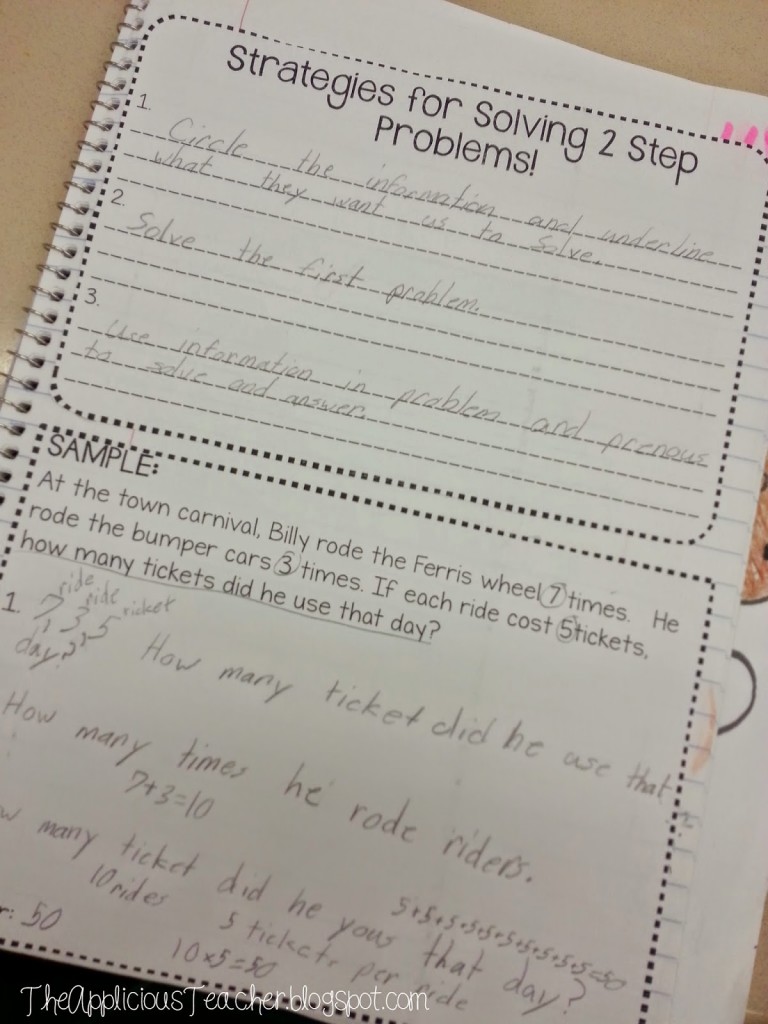
I like having kids write things in their own words. It makes me think they are "owning" their learning. We worked together using the three-step process to solve a sample problem right below.

Practice With a Buddy
Then, it was their turn to practice with a buddy. I have my class in Kagan style groupings, so I had them turn to their shoulder partner for this part.
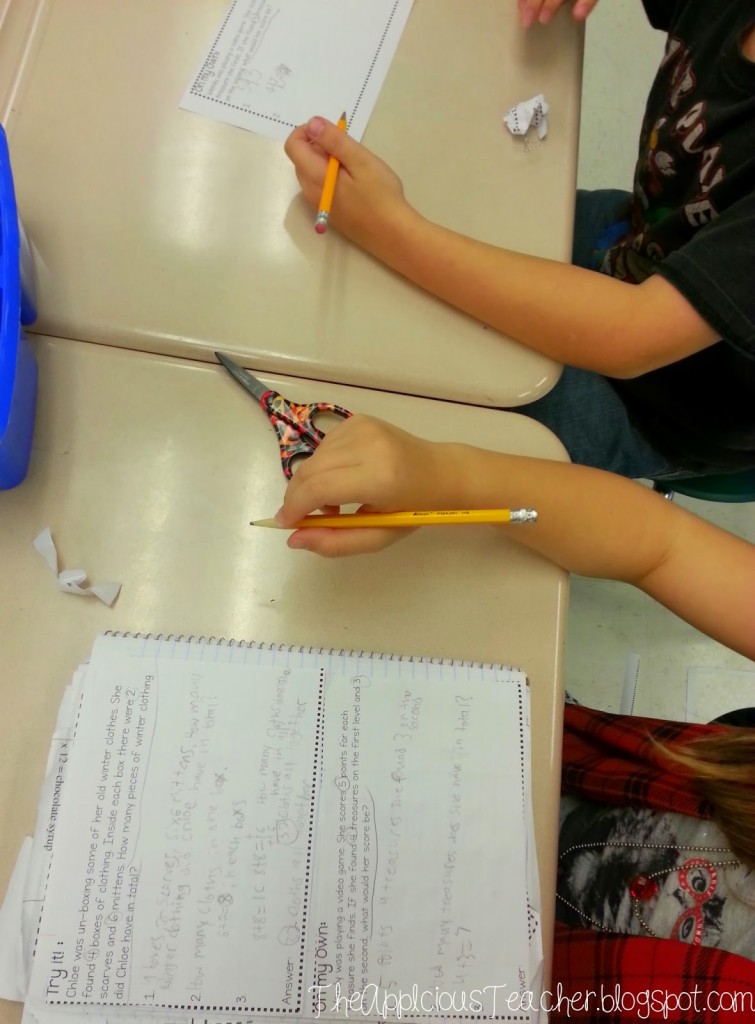
They talked it through with their buddy and then glued it in.
Independent Practice
Finally, they were ready to try the process on their own. They worked through the word problems just like they did with their buddy. And because their buddy was still sitting right by them, they could also double check if they had an issue.
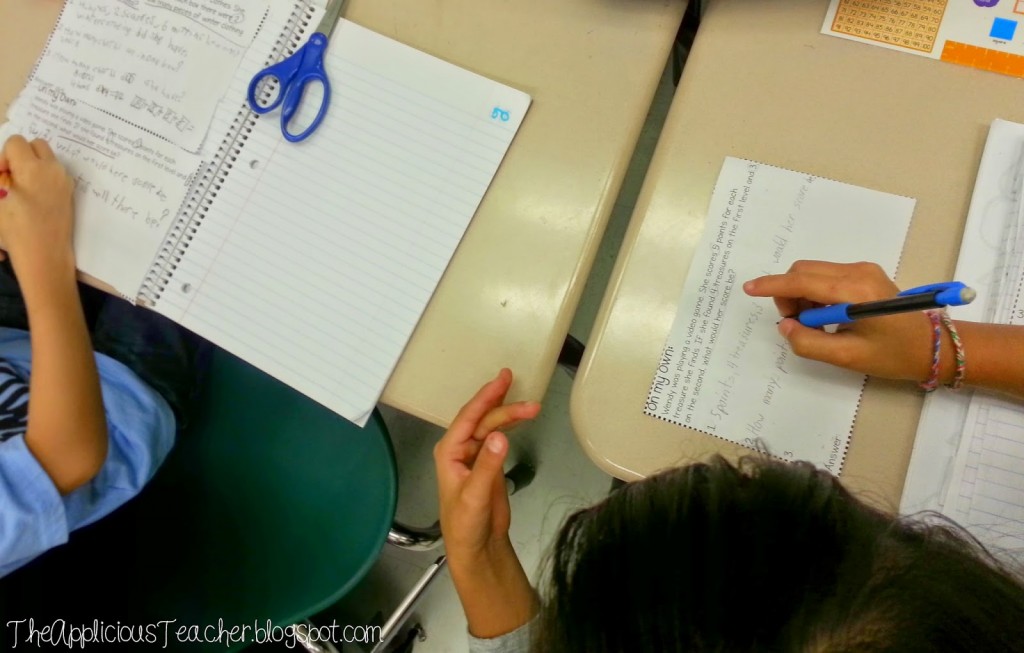
I spot-checked each student's notebook as they finished. This was a perfect chance for me to see who still needed help with multi-step problems.
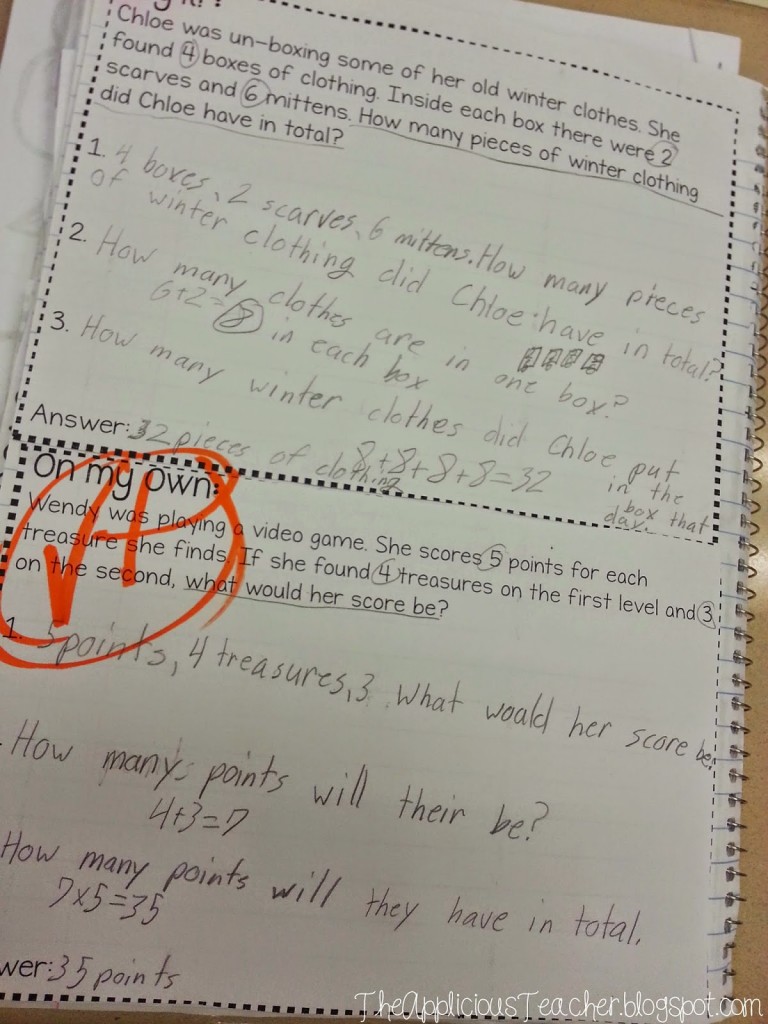
My orange soda smelly marker check was their ticket to move on to math centers. If students were still struggling, I pulled them to my small group while the other students worked through their tubs for the week. The following day, we continued to use the 3 step process to solve multi-step problems. I wanted students to try the process more on their own again. So I passed out another half sheet and glue it into their notebooks.

I gave them 10 minutes to work through the problem. This was WAAYY more time then they would really actually need, but I wanted them to really work through the problem and it gave me a chance to spot check with the students who struggled from the previous day.
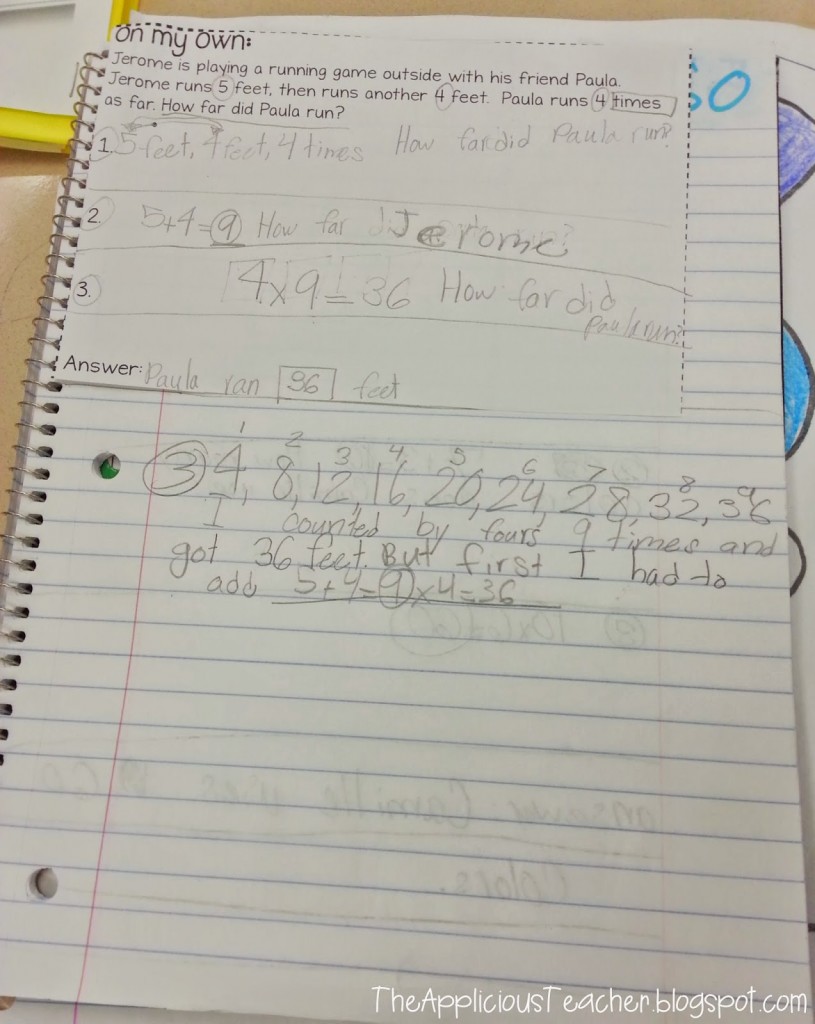
Number Talking our Answers
Once all the students were ready, we came back together as a class and shared every single person's way of solving the problem. I wanted each student to take a moment and explain their thought process. Eventually, we'll move to writing out the why's and how's but for now, talking is our first step!
I recorded everyone's method on the whiteboard. (Yes… my new school has half chalkboard and half whiteboard… so sad!)
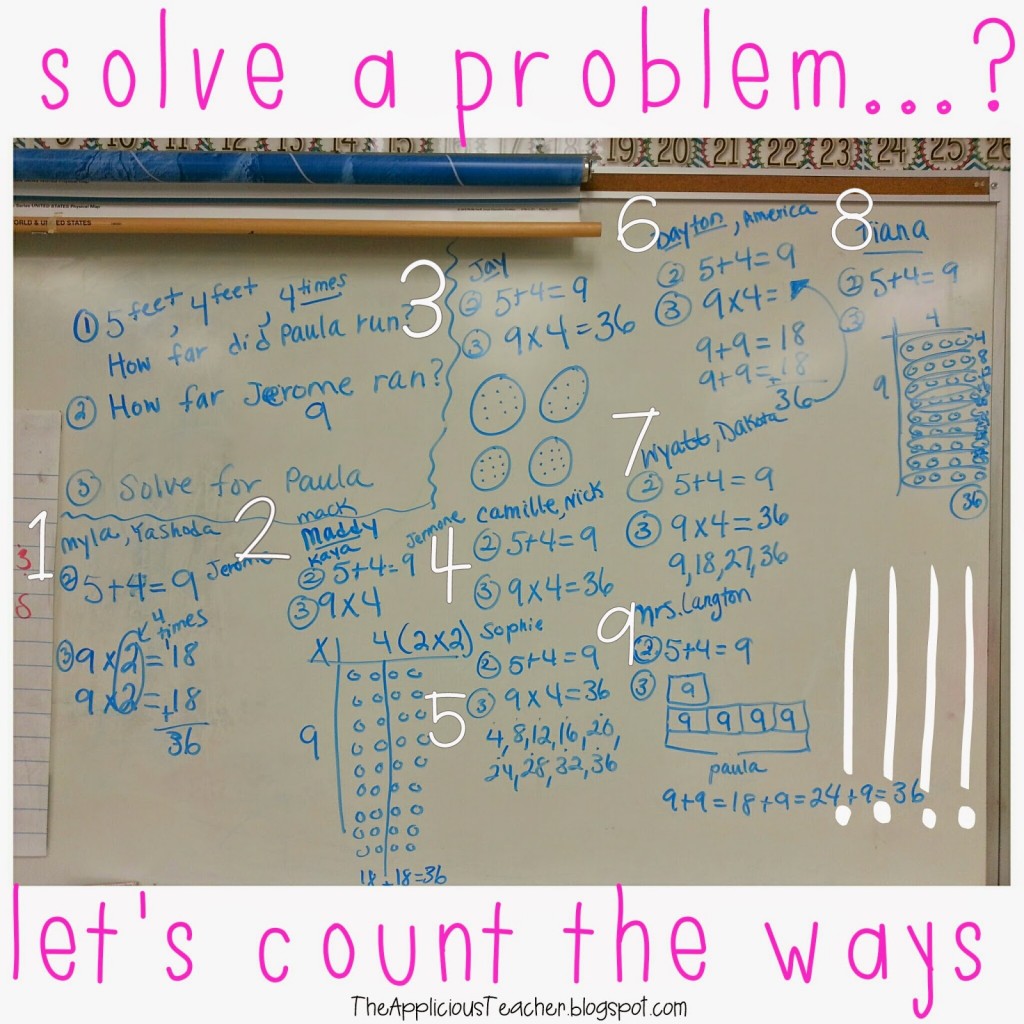
The results were powerful! If students used the exact same method, I wrote their names next to the work shown. It was a great start to explaining our thinking. Together our little class of 15 was able to come up with 9 different ways to solve this one problem! I loved the conversations that sparked afterward, "Why did you do that?" "Why did you do this?" "That would have been an easier way…"
This was one of the most effective strategies I've ever used for solving word problems! No more wondering… wait… did I do all the steps? Solved, completed, BAM! If you're in need of some more multi-step word problem activities, be sure to check out these word problem task cards!
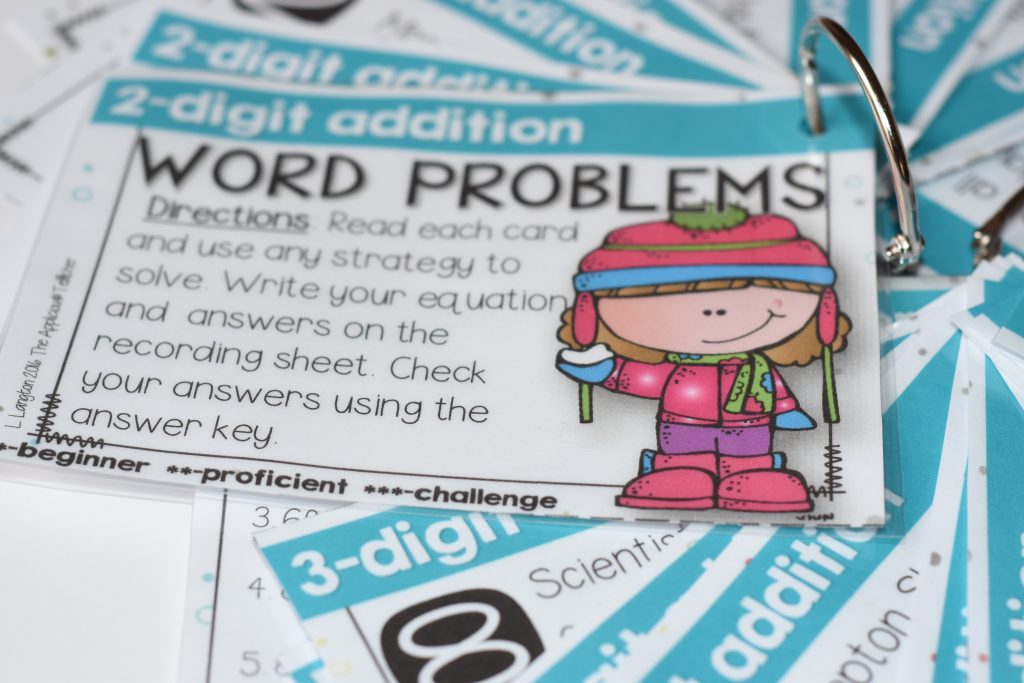
These differentiated cards are PERFECT for all learners in your 2nd or 3rd-grade classroom as they have word problems for 2-3 digit addition, subtraction, simple multiplication, and division. They also include multi-step problems for every section!
So do you have a little trick for solving multi-step problems? This way worked great with my students! You can grab the sheets I used here for FREE! Just confirm your email so I know you're not a robot, and then you can download the freebie!
- Categories: 3rd Grade, FREEBIE, lesson plans, Math, Math Time Fun, word problems
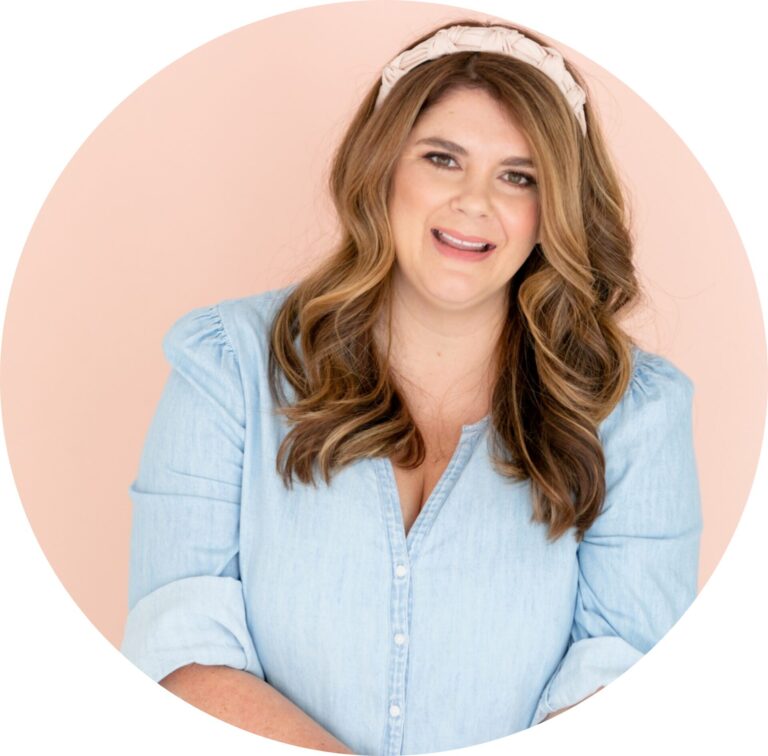
Hi, I'm Leigh.
The Applicious Teacher is all about creating hands-on and engaging lessons that align with the standards while still having time for your life. This is your place for ideas, tips, and resources for the REAL teacher!
![]()
Categories
- 2nd Grade
- Classroom
- Math
- Reading
- Writing
Recent Posts
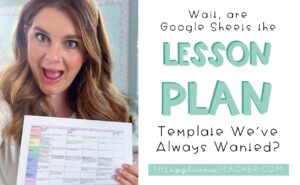
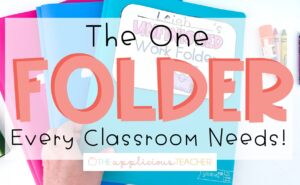
Popular in the Store
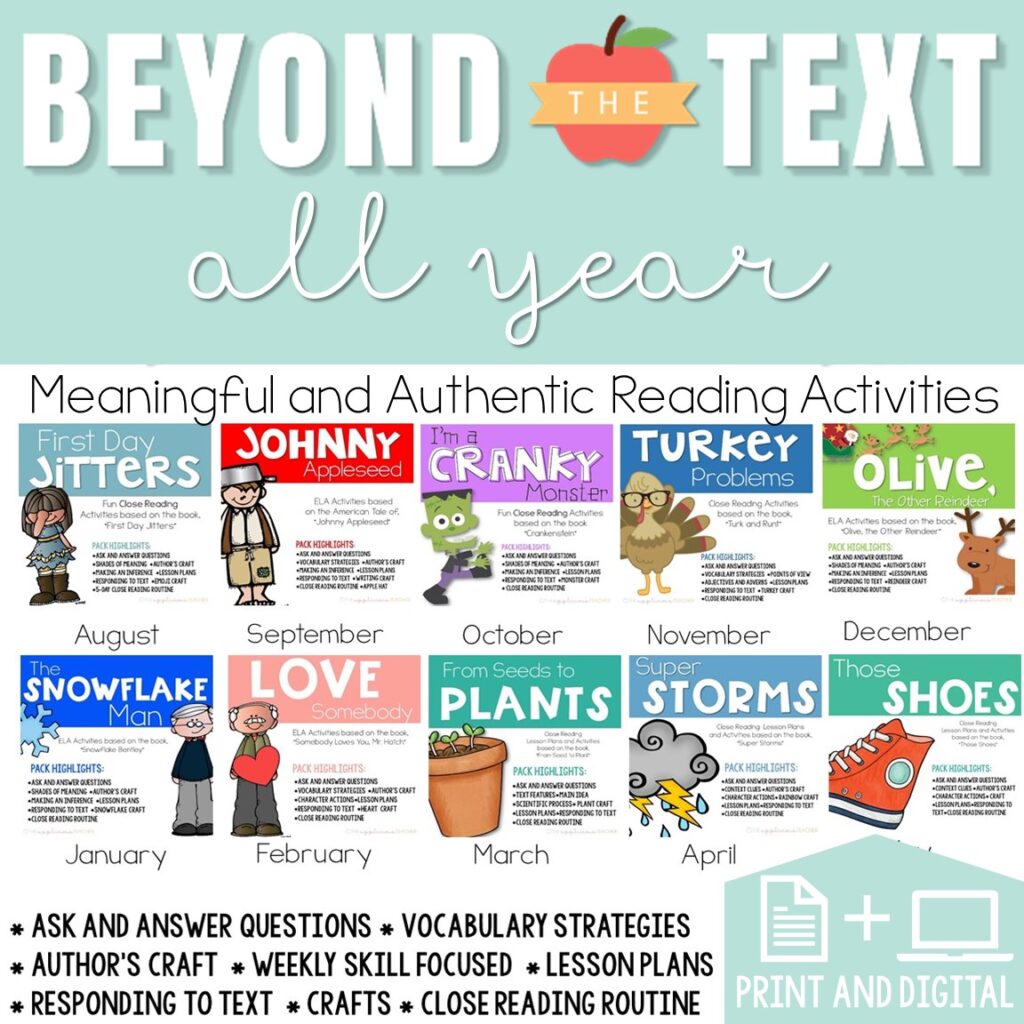
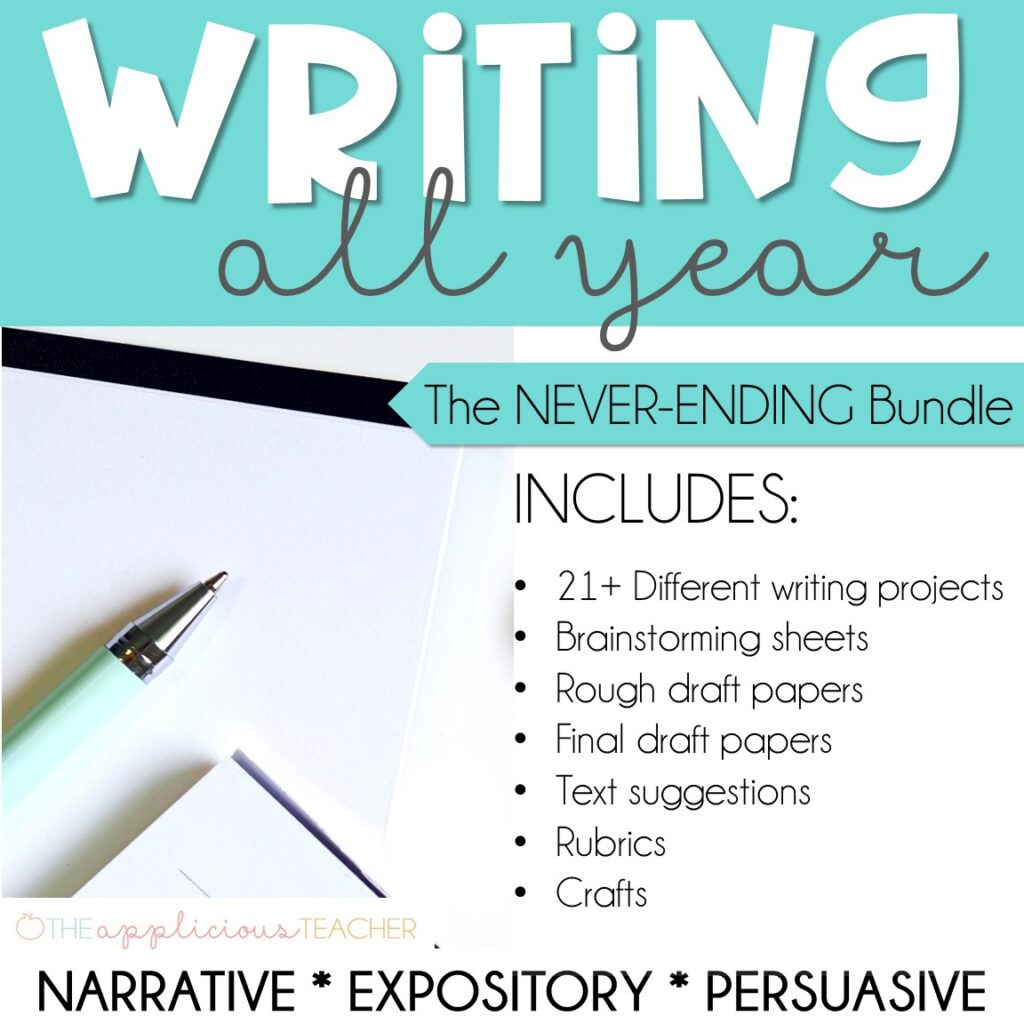
You may also enjoy...
aichelecamesquill1993.blogspot.com
Source: https://theappliciousteacher.com/multi-step-word-problems-decoded/
9 Responses
Love it! My students are struggling with two step problems. I love all the ways your students showed their answer and the math talk that resulted!!
I love this! Dropbox will not load on my computer for some reason, could you email it to me? [email protected] thanks so much!!
Thank you so much!! This will be a great anchor chart for my students to put in their math notebooks. To remind them of what we have talked about.
Beautiful gradual release lessons
this is great, but do you have any English language learners in your classroom to attend to that would need more support?
Amy- yes I have ESOL in my room. I teach in Florida and the area I teach has a moderate ESOL population. This is why I made the ISN pages. To give my students more structure within the math problem to help sort through the language.
Comments are closed.